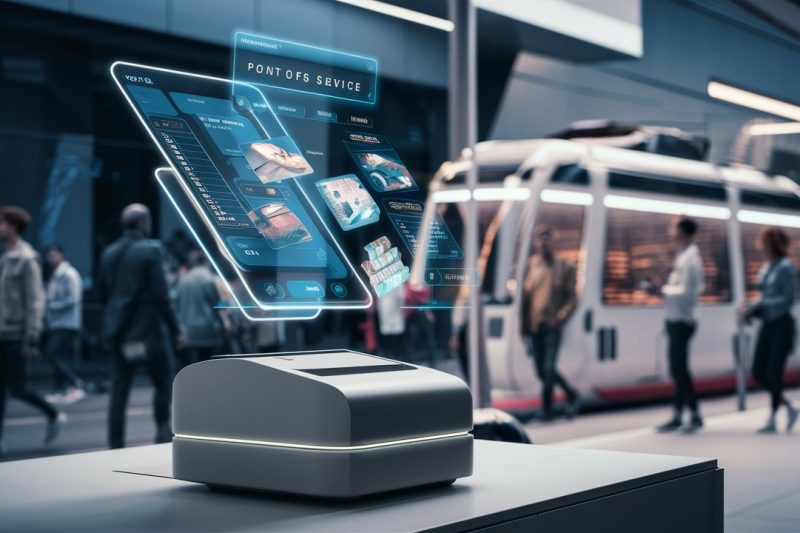POINT OF SALE
Key Components of POS Services
Hardware:
POS hardware includes physical devices such as cash registers, barcode scanners, receipt printers, card readers, and touch screen terminals. Modern POS systems may also incorporate mobile devices, allowing for more flexible and portable transaction processing.
Software:
POS software is the engine that drives the hardware. It manages sales transactions, processes payments, tracks inventory, generates reports, and often includes customer relationship management (CRM) functionalities. Cloud-based POS solutions are increasingly popular, offering accessibility from any location and real-time data updates.
Payment Processing:
A critical component of POS services is the ability to process various forms of payment, including cash, credit/debit cards, mobile payments, and digital wallets. Integration with secure payment gateways ensures the safe handling of sensitive customer information.
Inventory Management:
Advanced POS systems provide robust inventory management features. They track stock levels in real-time, manage supplier orders, and alert businesses when stock is low. This helps in maintaining optimal inventory levels and reducing instances of overstocking or stockouts.
Reporting and Analytics:
POS systems offer powerful reporting and analytics tools. These tools provide insights into sales trends, customer behavior, employee performance, and overall business health. Such data-driven insights aid in strategic decision-making and business planning.
Customer Relationship Management (CRM):
Many POS systems include CRM functionalities that help businesses manage customer data, track purchase histories, and implement loyalty programs. This fosters better customer engagement and retention.

Edutech, or educational technology, refers to the integration of technology into education to improve teaching and learning processes. This broad field encompasses a range of tools and services, from digital classrooms and online courses to learning management systems (LMS) and educational software. Edutech services have become increasingly vital in today’s educational landscape, providing innovative solutions that cater to diverse learning needs and environments.
Benefits of POS Services
Efficiency and Speed:
POS systems streamline transaction processing, reducing the time customers spend waiting in line. Quick and efficient service enhances customer satisfaction and can lead to increased sales.
Accurate Data and Reporting:
Automated data collection and reporting minimize human errors and provide accurate, real-time information. This accuracy is crucial for effective inventory management, financial reporting, and strategic planning.
Enhanced Inventory Management:
Real-time inventory tracking helps businesses manage stock levels more effectively, reducing the risk of overstocking or running out of stock. This ensures that popular items are always available, improving customer satisfaction.
Improved Customer Experience:
By integrating CRM functionalities, POS systems enable personalized customer interactions. Loyalty programs, targeted promotions, and personalized service can enhance the customer experience and build loyalty.
Sales and Employee Management:
POS systems often include features to track employee performance and manage shifts. This helps in identifying top performers, managing labor costs, and ensuring adequate staffing levels during peak times.
POS systems often include features to track employee performance and manage shifts. This helps in identifying top performers, managing labor costs, and ensuring adequate staffing levels during peak times.
Challenges in Implementing POS Services
cost:
The initial investment in POS hardware and software can be substantial, particularly for small businesses. However, the long-term benefits often justify the expense.
Complexity:
Implementing a new POS system can be complex and time-consuming. It requires proper planning, training, and sometimes customization to meet specific business needs.
Integration:
Ensuring that the POS system integrates seamlessly with other business systems, such as accounting software and e-commerce platforms, can be challenging.
Data Security:
Handling sensitive customer data requires stringent security measures. Businesses must ensure their POS systems are compliant with industry standards and regulations to prevent data breaches.
Conclusion
POS services are vital for businesses seeking to improve their transaction processing, inventory management, and overall operational efficiency. While there are challenges associated with the implementation and integration of POS systems, the benefits—such as enhanced customer experience, accurate data reporting, and streamlined operations—make them an indispensable tool in today’s competitive business environment. With careful planning and execution, businesses can leverage POS systems to drive growth and improve profitability.
